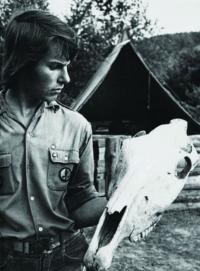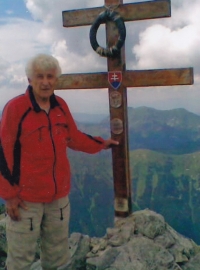A free state has been attacked and they expect me to approve of it?

Download image
Pravoslav Veselý was born in 1940 in Lázně Bohdaneč where his father worked as an accountant. He joined a local Boy Scout troop as a cub scout. The family later moved to Brandýs nad Orlicí, where Pravoslav attended elementary school. In 1958 he graduated from the secondary technical school in Vysoké Mýto. After his compulsory military service he began working as a planner in the construction department of the state-owned factory Perla. During the political thaw in 1868 he was involved in the Junák (Boy Scouts) organization, where he was a leader of a Boy Scout troop. At that time he was also a member of KAN (Club of Committed Non-Party Members). He refused to sign a statement approving of the entry of the Soviet army to Czechoslovakia, and he was subsequently dismissed from the company and left with no chance to find a skilled employment in the area where he lived. He therefore worked as a boilerman, road construction worker, or digger, and he held such non-skilled jobs until 1989. He was sentenced two times: first in 1971 to one year of imprisonment for assaulting a policeman (a staged incident done at the order of the public prosecutor). He served this sentence in prisons in Hradec Králové and Pardubice. His first wife divorced him during this time. He was then sentenced again in 1977 for organizing of a commemorative gathering of Boy Scouts. He got a two-month sentence, which he served in Hradec Králové-Pouchov. After the Velvet Revolution he was a member of the city council in Jablonné nad Orlicí. He joined the Civic Democratic Party (ODS), and till 2005 he served as the chairman or vice-chairman of the party’s regional organization.

